The Uttar Pradesh Revenue Board has created the UP Bhulekh website, which provides access to all land-related information in the state of Uttar Pradesh (UP). This website (https://upbhulekh.gov.in/) is particularly useful for prospective buyers who want to invest in developing parts of the state, as well as for persons who are embarking into land-related transactions in the state.
It is no longer necessary for citizens to visit the tehsil office in order to verify land records in the state as a result of the UP Bhulekh site, saving them both time and effort. The Bhulekh UP portal has also introduced much-needed openness to India’s centuries-old physical book-keeping system, which has remained mostly unchanged for hundreds of years.
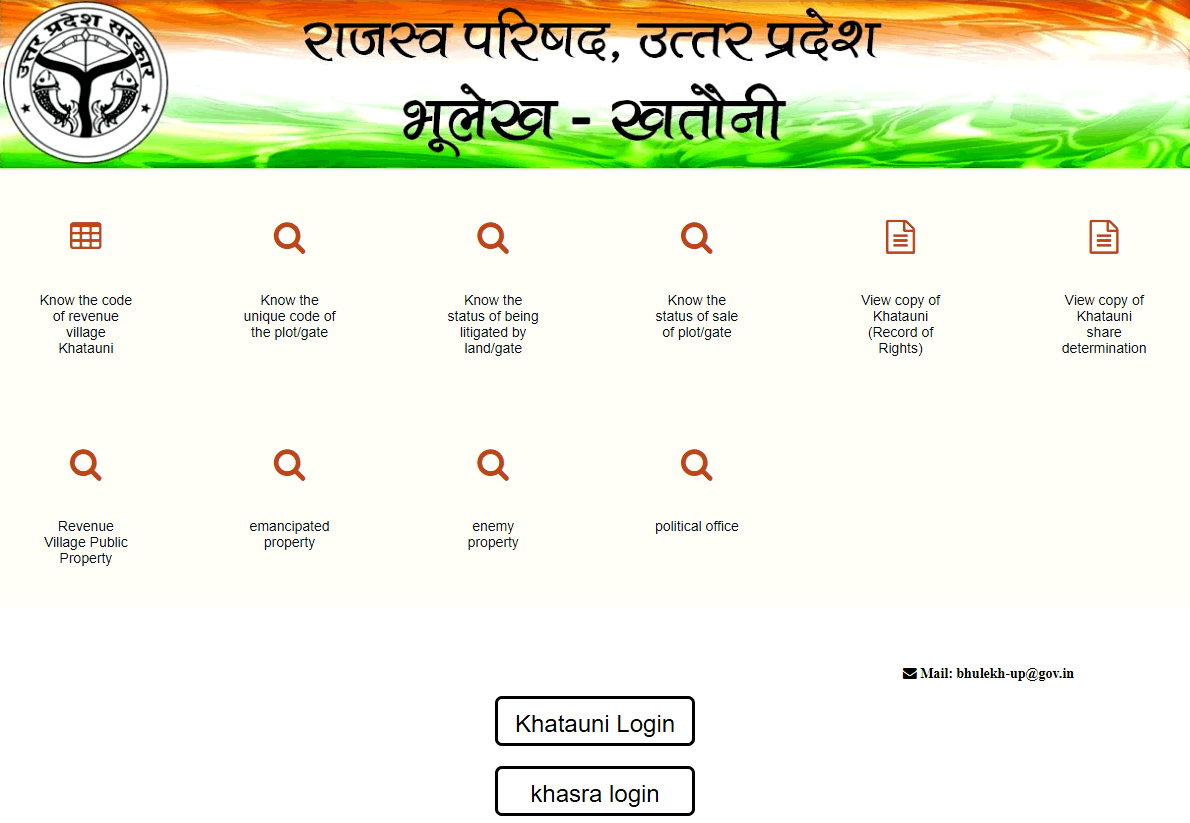
On the Bhulekh UP portal, you may find a variety of information
In this Post:
The following is a summary of some of the most important land-related information that you can obtain from the Bhulekh UP portal.
- Landowners’ names
- A land parcel’s or plot’s number of owners.
- A land parcel’s or plot’s ownership structure.
- A land parcel’s exact dimensions.
- Khasra’s specifics.
- Khata details.
- Land encumbrances
- Transaction history, including previous sales, debt, third-party claims, and so on.
- Enemy properties are listed here.
- List of vacated properties.
- List of public properties.
What is the best way to check land records on the Bhulekh UP website?
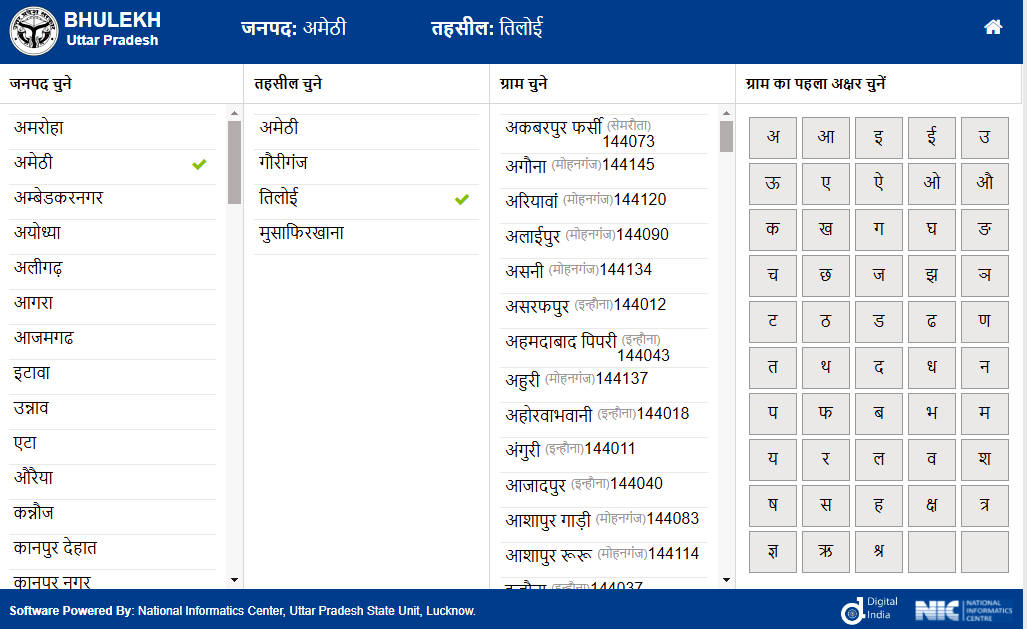
Keep track of important information such as the Khata number, the khasra number, and the khatedar number before beginning the search procedure. In order to finish your search, you will need to enter these specifics. To check land records using the Bhulekh UP portal, follow the steps outlined below:
- Step 1: Go to upbhulekh.gov.in, which is the official Bhulekh UP portal. Select ‘Khatauni (adhikar abhilekh) ki naqal dekhein’ from the drop-down menu on the home page (view the copies of record of rights).
- Step 2: You will now be prompted to enter the captcha that is displayed on the screen. After you’ve entered the captcha, click on the submit button.
- Step 3: You will be prompted to select the district, the tehsil, and the village from which you wish to examine the land record.
- Step 4: You can now proceed with your search by inputting the khasra/gata number, the khata number, or the name of the property owner (khatedar). Select the option with which you wish to proceed with the search and press the search button. The search by khasra/gata number is depicted in the graphic to the right of this paragraph.
- Step 5: To view the information of this khata number, choose the number and then click on the option ‘uddharan dekhein’ (view account details).
How can I verify the owner share information on the Bhulekh UP website?
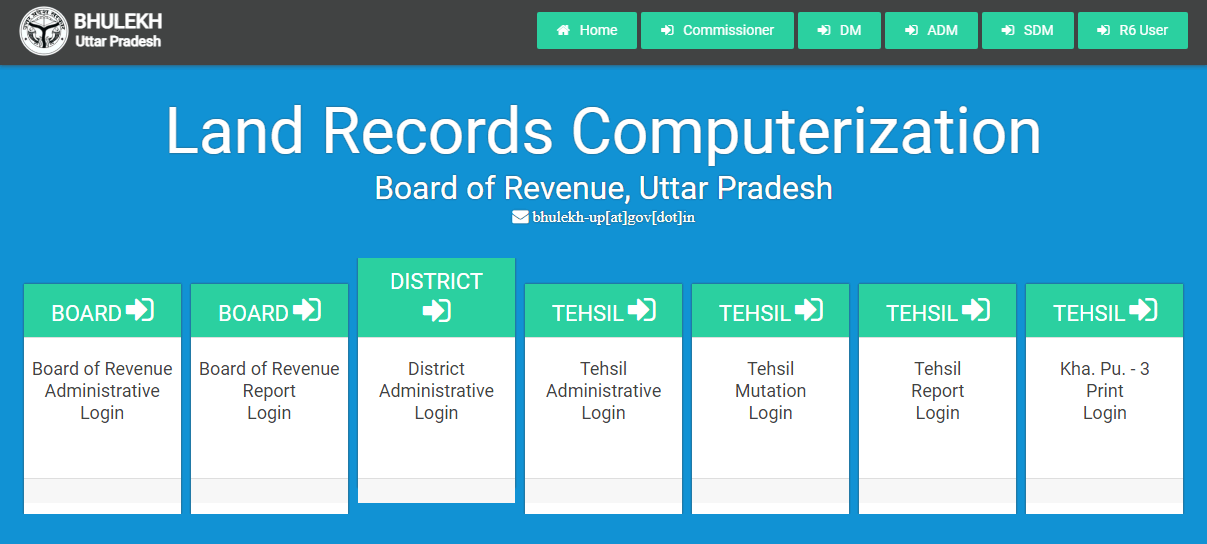
If you are purchasing land in the state of Uttar Pradesh, it is critical that you have accurate information about land ownership. On the Bhulekh UP portal, you can view the specifics of a khatauni’s land ownership by selecting the option ‘khatauni ansh nirdharan ki naqal dekhein’ (view the details of a khatauni’s land ownership), which will provide you with information on the land ownership pattern.
In order to proceed, you will be required to key in the names of the district, tehsil, and village, as indicated in the method above. As a result, you will be requested to resume your search using the khasara/gata number or the khata number, as well as using the name of the property owner, as well (khatedar).
Select the option with which you wish to proceed with your search and press the search button to begin. The search by khasra/gata number is depicted in the graphic to the right of this paragraph.
UP Bhulekh: Key phrases to be aware of
Khasra: In the same way that plot numbers are issued to each piece of land in urban India, agricultural land in rural areas is assigned a numerical identification that is identical to that of urban land. This is referred to as the khasra number in Arabic.
Khatauni: Also known as a type of account number, khatauni offers information about the land-holding pattern of a family.
Khewat: A khewat number, also known as a khata number, is an account number that is assigned to a family and represents the complete landholding of all of the members.
Jamabandi naqal: This is a report that contains the name of the landowner, the names of the farmers, the exact location of the land, its khasra number, the type of crop, the patta number, and other information.
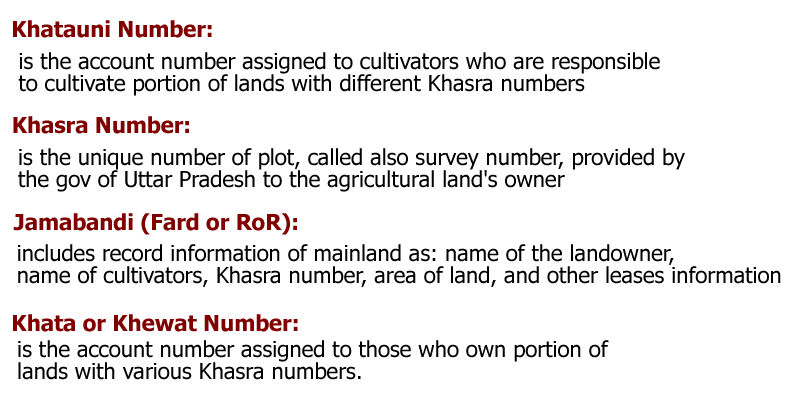
The term Bhulekh is a combination of two Hindi words: Bhu (which means land) and lekh (which means a person) (meaning account). As a result, the name Bhulekh is the same as the term ‘land records’ in the English language.
Bhulekh is the name given by the majority of Indian states to their online land record portals. For example, the portal for Bhulekn in Uttar Pradesh is referred to as UP Bhulekh, whilst the portal for Bhulekn in Bihar is referred to as Bihar Bhulekh.
The material supplied on the UP Bhulekh portal serves a specific purpose
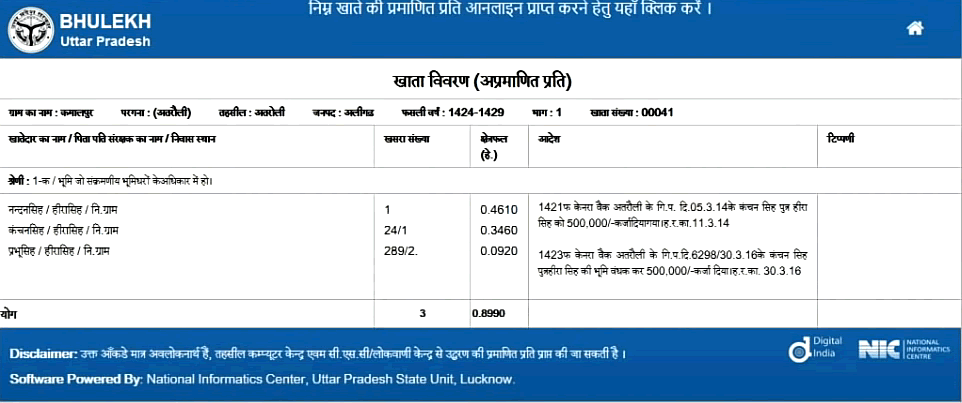
It is possible to benefit from the material offered on the UP Bhulekh portal in more than one way. You may verify the seller’s identity by using the land ownership information, which eliminates the possibility of any property-related fraud.
Because the Bhulekh UP portal includes all of the information regarding the exact area, type of land, conflicts over ownership, ownership pattern, loan, lease, court stay order, mutation status, and other relevant information, there is no possibility of the owner faking any information on the site.
Bhulekh UP portal also gives a list of public and non-transferable land, which means that a seller cannot transfer land to a buyer through the portal. Gram sabha or panchayat land, Patta land, pons, and wells, among other things, fall into this category.
Is it possible to use the documents you got from the Bhulekh UP website for work-related purposes?
Unless otherwise specified, the information supplied on the Bhulekh UP website is just for informative purposes, and any information received from the website cannot be used for official purposes.
The information contained below may be used for any official purpose; but, if someone wants to use it for this reason, they must first visit the land revenue department office and get an official copy of the information. You will be required to pay a small cost in order to obtain an approved document.